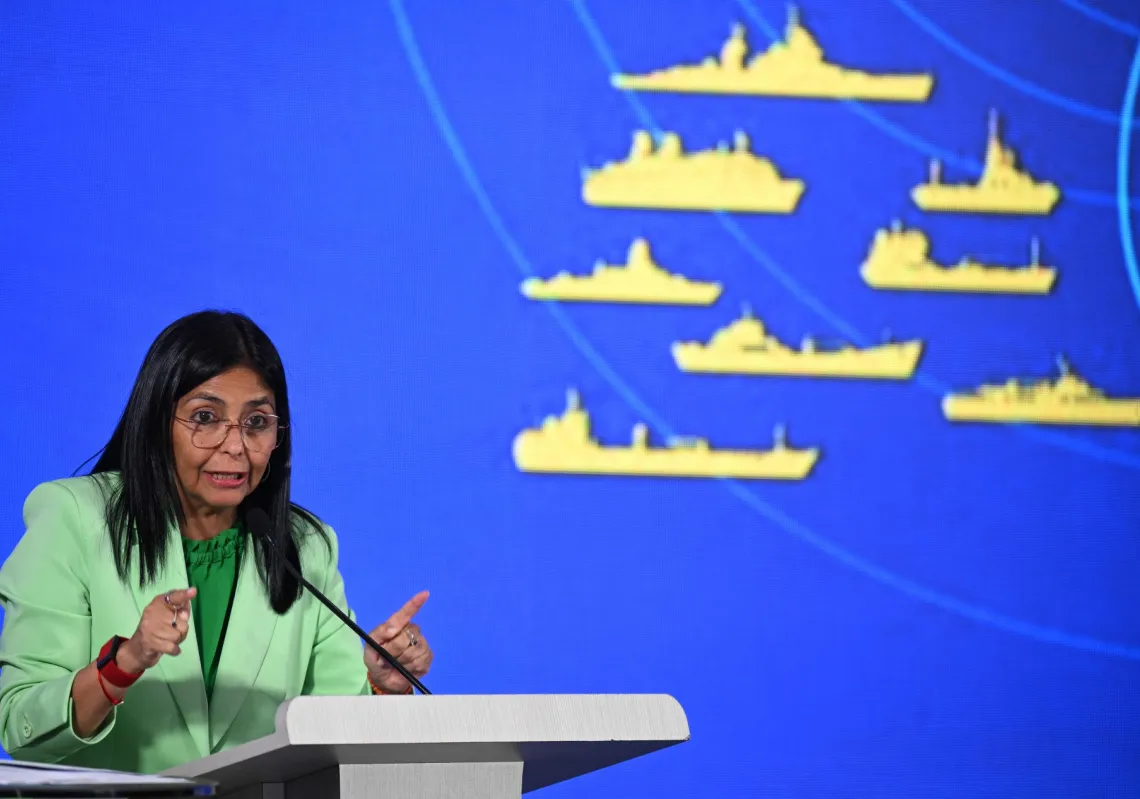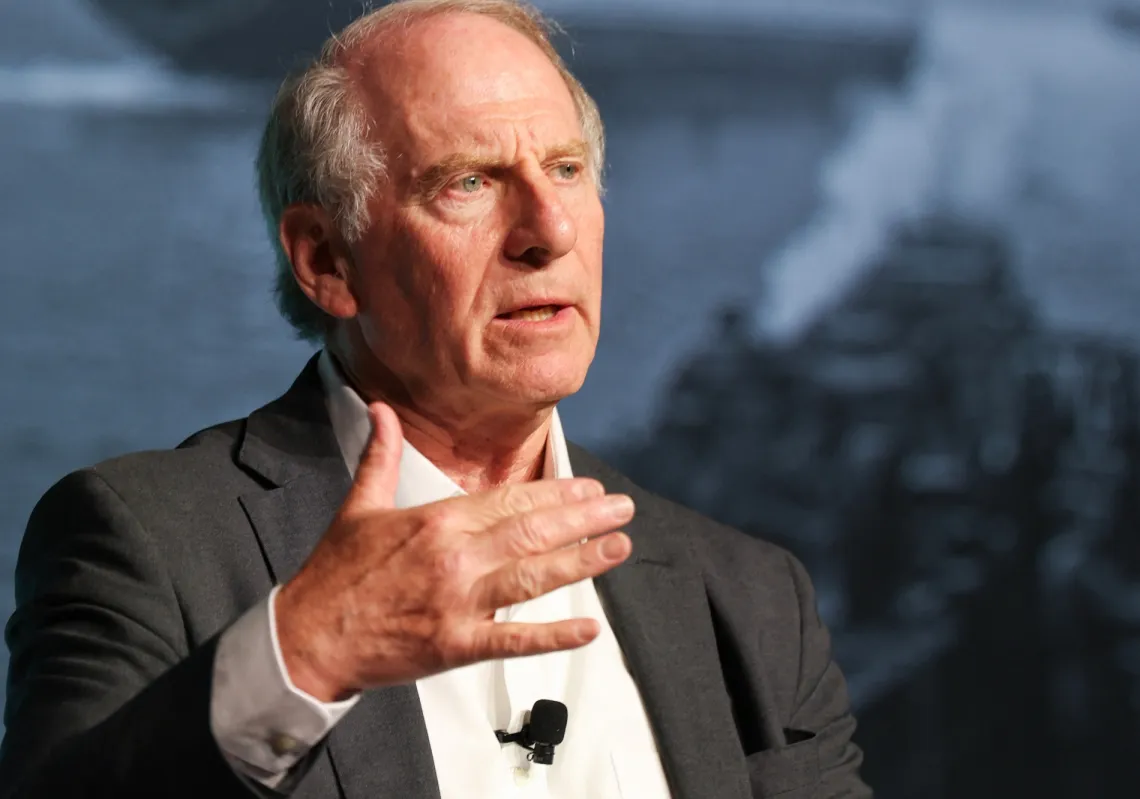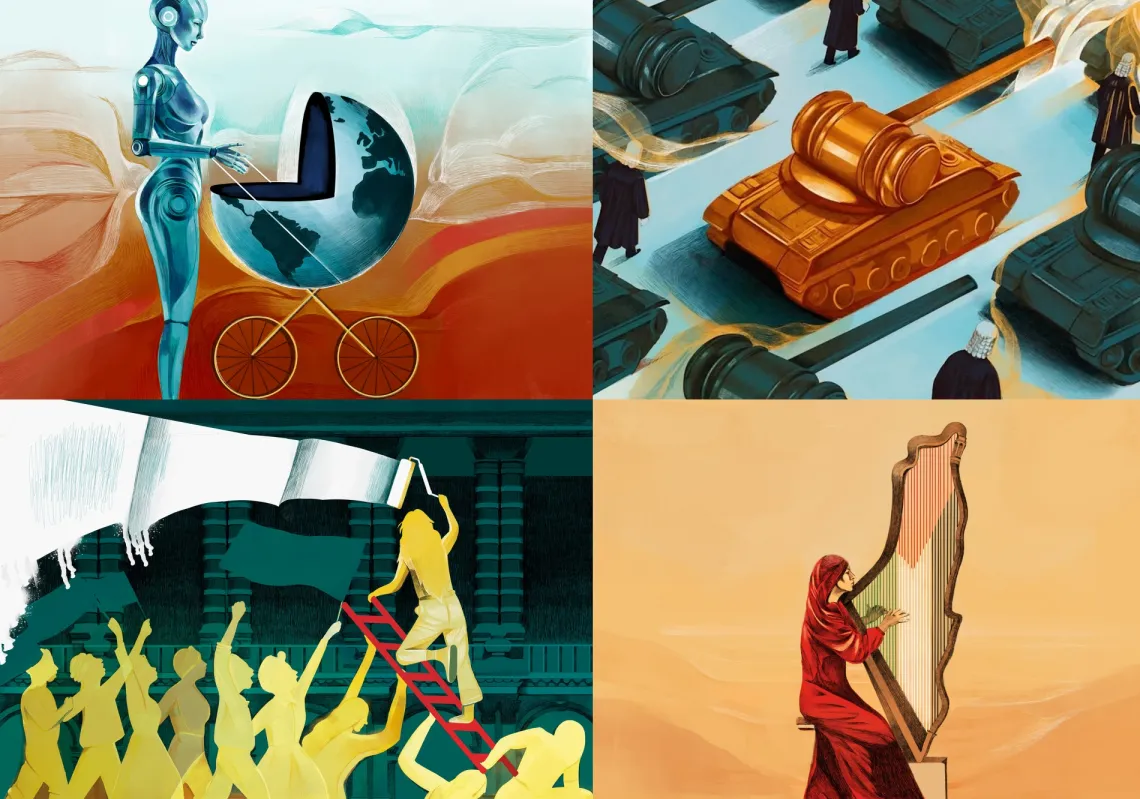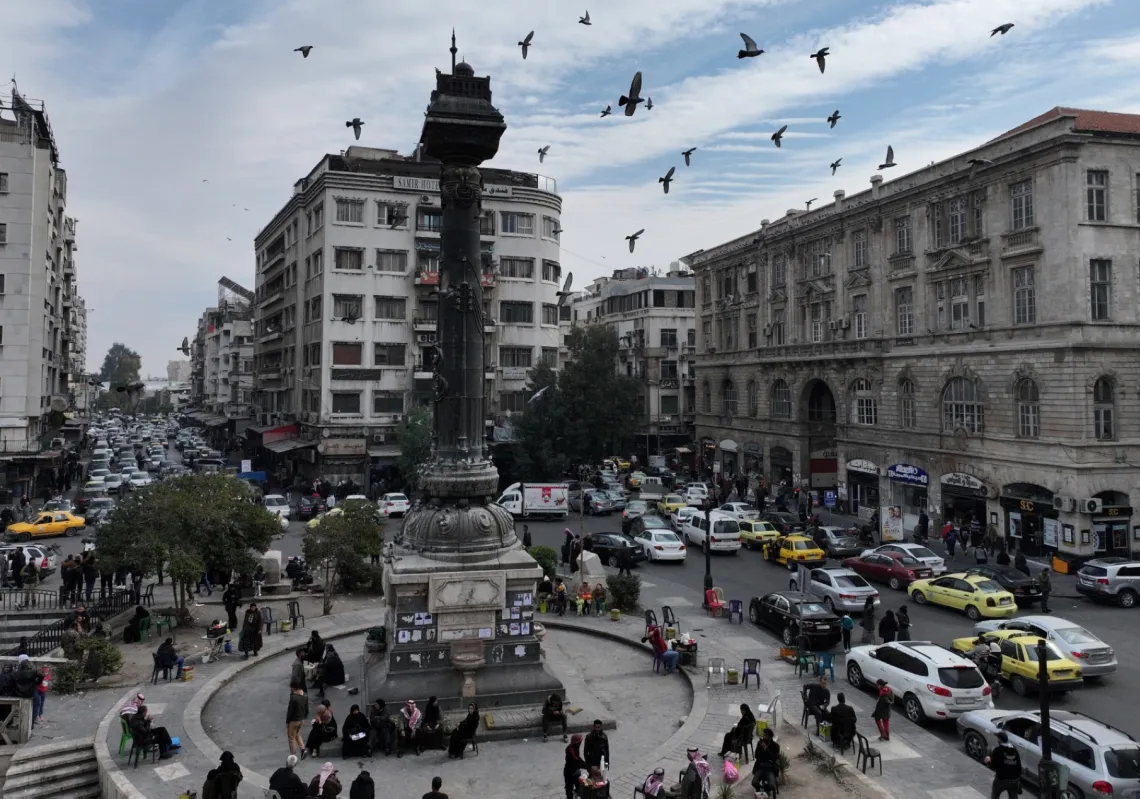Kuwait will never cease to be on top of Mideast news headlines. This small country has become a newsworthy subject-matter and has presented itself to the world as a country where politics overshadows all the other facets of life.
The parliament has been the top newsmaker recently in Kuwait and politics may be more popular than football here. This atmosphere certainly serves to enhance the freedom of expression which most Kuwaitis enjoy. There is hardly a household in Kuwait which is not well-connected with a parliamentary member, candidate or a former or current cabinet minister. The area falling between the two authorities, the legislative and the executive, is occupied by those working in the political domain who are distributed to major blocs according to their loyalties. They range from Islamists and liberals to Shiites and independents or tribal activists.
Democracy adds a special flavour to politics in Kuwait. But this flavour varies from one individual to another, according to their own taste for democracy. For political activists democracy has a savoury taste. For the government, however, it is something the government ill affords. As for citizens, some find it piquant while for others it is something insipid and tasteless. However, for the general public, it is as indispensable as salt. We cannot do without salt but at the same time we use it in completely varying degrees. Such is the case with democracy. Perhaps Kuwaitis have concentrated heavily on politics in the recent period. This made us oblivious to the fact that administration of the country's affairs has more to do with hard work than with political practice per se. Thus the high level of political awareness has become at variance with a low level of public performance. More often than not, citizens asked the government persistently to embark on new developmental projects in the education, health, power, public works and housing sectors with a view to raising the level of services in these sectors. While Kuwait is one of the richest countries in the world, with historic budget surplus resulting from hikes in oil prices in the past two years, it is plagued with a deteriorating level of infrastructural and public services.
The Sabah dynasty has been ruling Kuwait since the middle of the nineteenth century, when the first inhabitants of Kuwait emigrated from Najd in the middle of the Arabian Peninsula to the North Eastern frontiers of the Peninsula so as to settle in Kuwait, their new homeland. Since that time a number of rulers have successively run the country in full partnership with the people.
Political practice in Kuwait dates back to 1921, when the Kuwaitis signed for the first time a document asking the then-ruler Sheikh Jabir Al-Ahmad Al-Sabah for their right to participate in the government through an elected council that assists the emir in running the country. As a result, the first Shura (consultative) council was formed which consolidated the principle of sharing the government between the people and the ruling dynasty. This principle has been firmly established for about two and a half centuries now. During this span, Kuwaitis became well-settled in their new homeland and proclaimed Sheikh Sabah I as their ruler.
In 1938 Kuwaitis asked for a legislative council with wider legislative powers than its predecessor, which had lasted for no more than two months. They got what they had asked for. Then they worked on making the law on the election of members of the chamber of commerce and industry and drafting the naturalization bill. Added to that were some other procedures related to judicial reform, establishing government bodies and expanding the jurisdiction of the Learning Council so that it may succeed in raising the level of education. They also supervised the general budget and undertook the reforming of the ministry of finance. Late Sheikh Abdullah Al–Salem was the speaker of the Council.
However, the activities of the Kuwaiti Legislative Council were interrupted by events and confrontations in 1938 which had arisen from seeking influence and authority by the ruling family. Kuwaiti nationals demanded a bigger role to be played regarding decision making. This later resulted in dissolving the parliament several times and resorting to small committees for supervising and following up the activities of the main circuits in the country including the municipalities, Ministry of Education, Chamber of Commerce, Ministry of Health, etc. These committees were considered as an alternative to the Legislative Council. These circuits were similar to ministries in their executive nature. In 1961, Kuwait decided to abrogate the British Protection Covenant. In this way, the country changed from a tribal state into a modern state.
Under the rule of Abdullah Al-Salem (1950-1965), Kuwait made a giant leap. During this period, the country made use of oil revenues wisely after oil had been discovered in 1938. This played a vital role in forming the constituents of the state prominent among which was the enacting of a constitution to regulate the relationship between the two branches of authority through a constituent council.
After this council had completed its mission, the constitution was presented to His Highness Prince Abdullah Al-Salem in order to approve it. Consequently, Kuwaiti regime combined presidential and parliamentary approach with more of a tendency towards the latter which gives more powers to the parliament than the government. Later, this led to a parliamentary penetration into the activities of successive governments, which at times led to dissolving the parliament. The ruling family seriously considered the idea of cancelling the constitution due to the complicated relationship between the government and representatives of the National Assembly.
The constitution enacted in 1962 regulates the way of running the state in its modern posture. The ruling family and Kuwaiti citizens share management according to an equation that guarantees power balance among all parties with a predominance of the Prince in his capacity as the head of all authorities. He functions as a safety valve if any authority transgresses another's powers. He exercises his duties through the council of ministers. The government controls the country's affairs and directs its daily activities through this council. Kuwaiti nationals elect representatives of the National Assembly which is considered the elected parliament whose representatives are concerned with legislations and supervision while the government directs the country's affairs, enforces the law and carries out public projects.
The constitution distinguishes between the three state authorities (legislative, executive and judiciary). It gives them approximate powers that guarantee independence and neutrality of each authority. It also guarantees non-intervention into the activities of the members of each authority. Accordingly, there are two teams who "play" politics in Kuwait; ministers and representatives (In general terms, the parliament and the government). Each member player wants to score "points" for his own team. This may lead to breaking the "game'' rules or an intended friction in order to injure a player who is about to score a "goal". The playfield is always the parliamentary hall where ministers and representatives meet to direct state affairs, enact laws and regulations and supervise the government's performance and what its public spending.
The Kuwaiti constitution consists of 153 articles that make up five chapters. The first chapter deals with the state and the ruling regime. The second deals with the basic elements of society. The third deals with public liberties, rights and duties. The fourth regulates general provisions, the head-of-the state's mandate and legislative, judiciary and executive powers in addition to organizing the activities of the ministries ` and financial and military affairs. The fifth chapter states the temporary general provisions and actions followed to amend any article of the constitution.
Since 1963, the year during which Kuwait started adopting the constitutional system, 25 governments were formed in the country, parallel to 12 elected parliaments (the official term of a parliament is four years). Six of those parliaments were dissolved. The country's emir's has the right to dissolve parliament and call for early elections, or dismiss the government and form a new one, in case cooperation between the two powers proves impossible.
The toughest two decisions to dissolve the parliament were the ones taken in an unconstitutional manner. The decisions were accompanied by a suspension of the constitution and halting the work of some of its provisions during the period 1976 - 1981, and 1986 – 1992. These actions led to what the opposition forces see as two real disasters which threatened Kuwait. The first occurred when the stock market collapsed in 1982, and the second was the Iraqi invasion of Kuwait.
However, the Kuwaitis managed during the Iraqi invasion in 1990 to reach an agreement with the ruling family, in a popular conference held in Jeddah in Saudi Arabia during the month of November of the same year. The conference ended with forcing the ruling family to comply with the constitution, and re-electing the parliament. The two provisions were implemented afterwards, bringing parliamentary life back to Kuwait in 1992 which has continued until today.
According to the election law, every Kuwaiti at the age of 21 years or more can become a voter and choose his representatives in parliament, except for military people who are forbidden by the law to engage in any political activity. Moreover, women have engaged for the first time in political action formally in 2005, when the parliament approved their political rights. This was achieved through the cooperation of MPs and ministers in voting, amid opposition from tribal and Islamist MPs. Electoral constituencies are divided into five districts, distributed geographically. Each constituency represents the ten candidates who win the highest numbers of votes. Thus the parliament is composed of 50 deputies, and the government consists of a prime minister along with 15 ministers.
At least one minister must be a member in the parliament according to the constitution, so the parliament will be composed of the government and the parliament deputies together. Accordingly, the total number of parliament members will be 64, and they share in legislation and managing the country's affairs. Ministers are prohibited from participating in voting on no-confidence motions which might be requested by MPs after interpolating any of the ministers.
There is always tension between the legislative and executive authorities due to the absence of a clear program of action, and the declining level of public services, in addition to non-public interventions by some powerful people in the country to control the public decision. This leads to clashes between ministers and MPs, to reflect the hassle in the Hall of Abdullah Al-Salem inside the parliament. It is the same hall where the MPs and ministers meet for discussions. The clashes reflect the intensity of tension engulfing the political arena. The tension wraps underneath it a real struggle for influence, power and authority.
The opposition persistently accuses the government of lacking seriousness in dealing with administrative and financial corruption, in addition to the deterioration in the level of public services and the absence of development projects. Meanwhile, the government answers the accusations by saying that the repeated escalation by the MPs makes it lose focus on its work, because the accusations require it to be present all the time to answer the MPs, their questions and accusations, which would reflect badly on its overall performance.
The political currents compete as well for parliament seats and administrative positions inside it, as they consider this a measure of their power and an indication of what they represent on the political level. But the government has worked since the late 1970s on strengthening the religious trend versus the liberal trend. The move benefited members of the tribes, particularly who joined political life under the veil of political religious movements. In one respect, the scene turned from a political confrontation to a social one, dividing Kuwaitis between the sons of Kuwaiti tribes and residents of the capital, which was reflected on political action. This resulted in the retreat in public freedom, and religious-oriented laws were passed, including the law of alms on the income of companies, and the separation between the two genders in the university.
Local media (15 daily newspapers and 5 satellite channels), play an important role in exposing the negative aspects of the parliament, and shedding light on government failures. This led to increasing the tension between the two sides, turning the mistakes to issues adopted by the MPs, to gain publicity in their constituencies. This behaviour created a mood of frustration among the citizens.
On May 16, Kuwaitis will go to the polls to choose their representatives at the 13th round of the parliament. The country's ruler Emir Sheikh Sabah Al-Ahmad called on the voters last month to select their representatives carefully and to choose the best for the benefit of Kuwait. He called on the Kuwaitis to help him do his task, after he grieved for the deteriorating conditions in the country. This followed loud criticism from the MPs and the ministers, and the political process suffered stumbles that paralyzed Kuwait, and contributed to hindering the development process. Ministers and MPs took time and liberty to trade accusations, while the Kuwaiti citizen is still perplexed as to how to classify the flavour of democracy that his country has.








